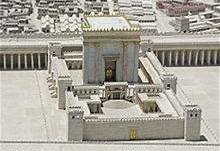Thoughts for the Day
Thursday, 11th May 2023: The Council of Jerusalem
Holy Spirit Law Peter Acts 15 God
Reading : Verses from Acts, Chapter 15

After there had been much debate, Peter stood up and said to them, ‘My brothers, you know that in the early days God made a choice among you, that I should be the one through whom the Gentiles would hear the message of the good news and become believers. And God, who knows the human heart, testified to them by giving them the Holy Spirit, just as he did to us; and in cleansing their hearts by faith he has made no distinction between them and us. Now therefore why are you putting God to the test by placing on the neck of the disciples a yoke that neither our ancestors nor we have been able to bear? On the contrary, we believe that we will be saved through the grace of the Lord Jesus, just as they will.’
(Lectionary, New Revised Standard Version)
Thoughts
As we saw yesterday Paul and Barnabas have taken the whole question about whether Gentile Christians should obey the Law of Moses (and be circumcised etc), from the church in Pisidian Antioch to Jerusalem to consult with the disciples and elders there. Pharisees with their strict emphasis on the law were trying to entrap the new Christians in all the confines of the Law of Moses. The Council of Jerusalem had to make a decision for the future. It is Peter who argues the case, out of his own experience of a vision that God had given him (Acts 10) concerning clean and unclean animals, and the acceptance of Gentile converts.
His argument is so simple. He says that God has cleansed the hearts of the new converts by faith, and given them the Holy Spirit, just as He did to them. These are both gifts of God, he says, and if God has acknowledged the Gentiles as full members of His work, then so should the Church. Peter further argues that they are putting a yoke - the equivalent of the hugely heavy wooden beam that oxen wore to haul the plough - upon these new Christians which the Jews themselves have never been able to bear. This seals the argument, even though some Pharisees who had become Christians were unhappy with the outcome.
As Christians today we should be careful not to place restrictions on others that have little to do with faith, but a lot to do with custom and tradition. We should never forget that God moves His church onward, challenging us about what our faith is really about.
Prayer
Heavenly Father,
help us to see what real faith
in You is all about,
and to be careful not to
place the restrictions of tradition
upon others,
but allow the Holy Spirit
to encourage us all to move forward
on the path You have set before us.
Amen.
You might like to find out more about the Council of Jerusalem: